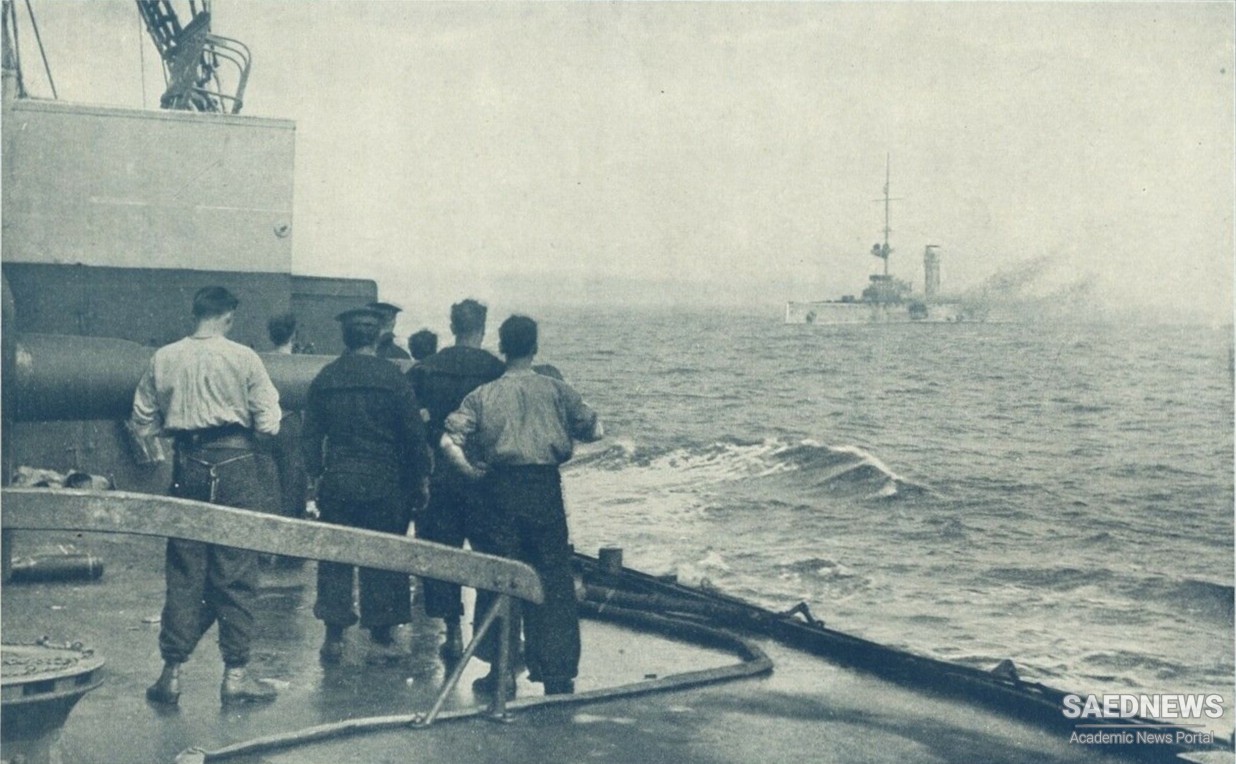By 1916 the British blockade was achieving all that had been expected of it. The Germans were able to make marginal evasions through neighbouring neutral powers— Holland, Denmark, and Scandinavia—and their scientists, as we have seen, had devised home-produced substitutes for such essential imports as textiles, rubber, sugar, and especially nitrates for explosives and artificial fertilizer. None the less, the pressure was becoming quite literally lethal. Mortality among women and small children had increased by 50 per cent and hunger-related diseases such as rickets, scurvy, and tuberculosis were endemic. By the end of the war official German estimates attributed 730,000 deaths directly to the blockade. Probably this was an overestimate: many of the shortages were in fact due to distortions of the economy resulting from the enormous demands of the military. But government propaganda could plausibly attribute all the hardships being suffered by the civil population to British brutality. Why should the British not be made to suffer in their turn?
To make them do so appeared not only possible but, in the eyes of most Germans, entirely legitimate. The British had already stretched if not broken international law when in November 1914 they had declared the whole of the North Sea a ‘war zone’ in which neutral shipping could proceed only if licensed by the Royal Navy. The Germans retaliated the following February by declaring all approaches to the British Isles a war zone in which they would seek to destroy all hostile merchant ships, ‘without being able to guarantee the safety of the persons and goods they were carrying’. Three months later the British further escalated the situation by announcing their intention of seizing and confiscating any goods they suspected of being destined for Germany, whatever their ownership or alleged destination—thus effectively imposing a total blockade of all trade with Germany irrespective of neutral rights and legal definitions of contraband. This aroused huge protests in the United States, which had gone to war with Britain 100 years earlier over precisely this issue; but hardly had these got under way when, on 6 May 1915, a German U-boat sank the British luxury liner the Lusitania off the south coast of Ireland on a voyage from New York. The vessel was certainly carrying contraband in the shape of ammunition, and the German consulate in New York had warned American citizens that they travelled on it at their own risk. But nevertheless 128 of them did and most of them perished, together with over 1,000 fellow-passengers.
The shock to world opinion was comparable to the sinking of the Titanic three years earlier, and was exploited to the hilt by British propaganda as yet another example of German ‘frightfulness’. It was now clear that, in the battle for American public opinion, Germany was at a major disadvantage: whereas the British blockade cost the Americans only money, the German cost them lives. After another passenger ship, the Arabic, was sunk the following August, even though only two US lives were lost, American protests became so violent that the German navy forbade their U-boat commanders to sink at sight, and withdrew them from the Atlantic and the Channel altogether. This meant that German U-boat commanders now had to operate according to the laws of ‘cruiser warfare’, which involved surfacing to identify and halt suspected vessels (which were often armed, and might even be British warships disguised as unarmed neutrals) and ensuring that passengers and crew were safely in their lifeboats before sinking their ship, thus giving time for their victims to radio their position and that of their attackers. Even so, the losses they inflicted were serious. By the end of 1915 they had sunk 885,471 tons of Allied shipping; by the end of 1916, a further 1.23 million tons. The Royal Navy seemed powerless to stop them. What might they not do if their hands were untied?
The German Naval Staff set up an expert study group to consider this question, which came up with some remarkable results. It concluded that the British had available only some eight million tons of shipping for all purposes. If the rate of sinking could be increased to 600,000 tons a month and neutral shipping were scared off, within six months Britain would run out of such essential foodstuffs as grain and meat; her coal production would be hit by lack of Scandinavian timber for pit props, which would reduce her production of iron and steel, and that in its turn would reduce her capacity to replace the lost shipping. British surrender within six months was thus statistically certain, whether or not the United States came into the war.
Even for many in Germany who were not privy to these calculations the case for unrestricted submarine warfare now seemed overwhelming, and a public debate was waged over the question throughout the latter half of 1916. On the one side were the navy, the High Command, and the political forces of the right. On the other were the Foreign Office, Chancellor von Bethmann Hollweg, and the Social Democrats in the Reichstag. Bethmann Hollweg did not trust the statistics. He was convinced that urestricted submarine warfare would bring the United States into the war, and that this would guarantee Germany’s defeat. But he could see no alternative except making peace; and the only peace terms the High Command was prepared to contemplate were ones that the Allies would certainly not accept.


 1916: the War of Attrition
1916: the War of Attrition














































